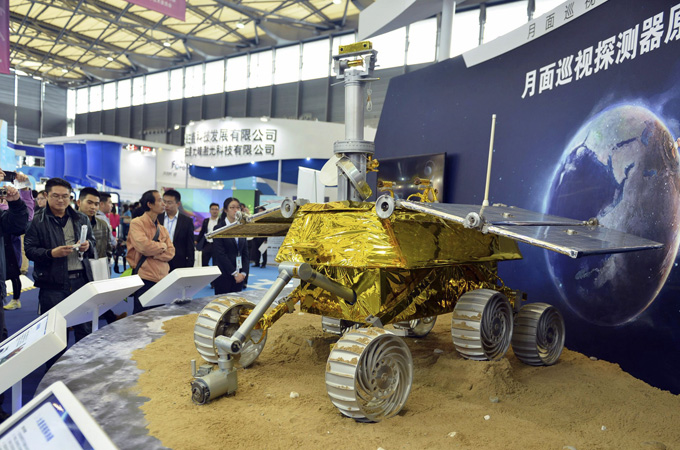China just set its first rover on its
journey to the Moon, while India is sending its first spacecraft to
Mars. China has had several manned space missions in the recent past
and is planning on putting its first man on the moon by 2020.
Putting a man on the moon would make China the third country in the
world to do so, while the mars orbiter would put India in fourth
after the US, Europe and Russia to do so. Not to mention that there have been several other countries to have other manned space missions.
 This sounds like a big
deal, until the time gap between when these achievements were made by
US/Russia and/or Europe and when they are going to be made by
China/India is considered. The first manned mission to the moon
happened in 1969 and the first successful mars orbit (Mariner 9)
happened in 1971 – there are many ways to put this into
perspective, I (nerd) prefer these:
This sounds like a big
deal, until the time gap between when these achievements were made by
US/Russia and/or Europe and when they are going to be made by
China/India is considered. The first manned mission to the moon
happened in 1969 and the first successful mars orbit (Mariner 9)
happened in 1971 – there are many ways to put this into
perspective, I (nerd) prefer these:
Today, a TomTom GPS unit is 224 times
faster than the the Apollo guidance computer that landed the lunar
module on the moon back then.
OR
Today an Iphone 5 has two 1.3Gigahertz
processors and about 1GB of RAM... the fastest supercomputer in 1976
(6 years AFTER the first mars orbiter) had 118Megahertz and a 32MB of
RAM. This supercomputer was the Cray 1 and it weighed five and a half tons and needed a Freon cooling system.
Obviously it takes more than an Iphone
to make it Mars, but this puts the technological progress since then into
perspective. The U.S. And Russia basically landed on moon with the
help of a handful of quick abacuses (or abaci??), while India and
China, at least with respect to computing power have access to
(almost) the cutting edge. Their accomplishment seems less
impressive in comparison; but for their respective histories these
are still important achievements. The rapid economic development of
China and India over the last 20 some years made these space missions
possible and therefor their development has to be commended
(obviously each country still has widespread poverty and is still far
from being as developed as western europe or the U.S.).
Many questions arise but two that are
being thrown around in the news are a) Why are they focusing on space
missions? And b) is this an Asian space race with geopolitical
consequences?
While Xi Jinping proclaims that he
wants China to become a space superpower, this is not necessarily
relevant or possible in the near future, since as shown above, the technological
divide is still vast. Furthermore, if the U.S., Russia and Europe
have been doing space missions for almost half a decade and have not
found any game changing resources on Mars or the Moon, it is doubtful
that China or India will find any now as they are just happy to make
it to their destinations.
Is it a space race? Sort of, but not in
“traditional” geopolitical sense.
There are likely no new ground breaking technology gains China or
India are getting from undertaking these missions – there may be
process improvement or cost efficiencies but no technology gains that
are going to create a massive spillover. The absence of technology spillover is oddly enough the main reason
why these missions make sense.
Both countries have been developing rapidly over the last 20 years but are now starting to slow down. Neither country have homegrown businesses that are
international recognized besides their state owned enterprises.
India still has not really industrialized, its large sectors are
textiles and the service industry – neither have lead to great homegrown
innovations. While China is industrializing it is mostly assembling
products, it is not creating them. There are a few exceptions in
each country, like Tata in India or Lenovo and Huawei in China. Innovation and technology is still done in
the U.S., Europe and now also in the Asian Tigers. Therefore these
space programs seem more of an elaborate advertising campaign
screaming “We made it to the moon/mars by ourselves – we are
ready for your investment!” Both countries already receive
investment from abroad, but again, it is mostly investment in foreign subsidiaries not in domestic businesses, with a few exceptions.
Sadly, these campaigns are not
addressing the problem, no investor is going to invest in India
because they made it to Mars, when the country's infrastructure is
still massively underdeveloped and the government is plagued by
corruption. The story for China will be similar unless the government becomes less corrupt, more investor friendly, more market oriented and more open at
home.
No moon landing is going to make up for bad governance.
No comments:
Post a Comment